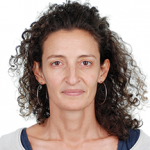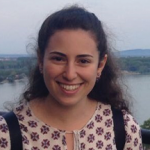
Research Fellows
Jad Chaaban
Associate Professor of Economics, Doha Institute for...

Research Fellows
Nisreen Salti
Associate Professor, Department of Economics, American University...

Authors
Hala Ghattas
Associate Research Professor, American University of Beirut

Authors
Wael Moussa
Research Scientist, Education Policy and Data Center/Research...

Authors
Alexandra Irani
Project Research Manager, Applied Economics and Development...

Authors
Zeina Jamaluddine
Center for Research on Population and Health,...

Authors
Rima Al-Mokdad
Research Assistant, Department of Agriculture, Faculty of...


